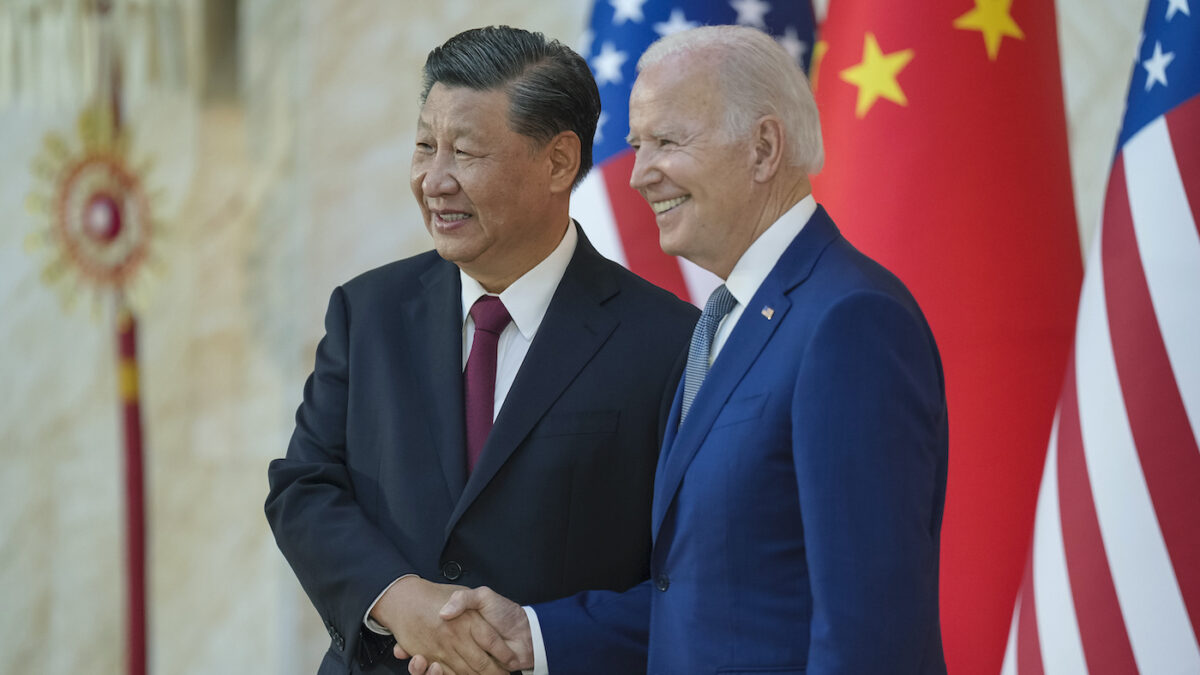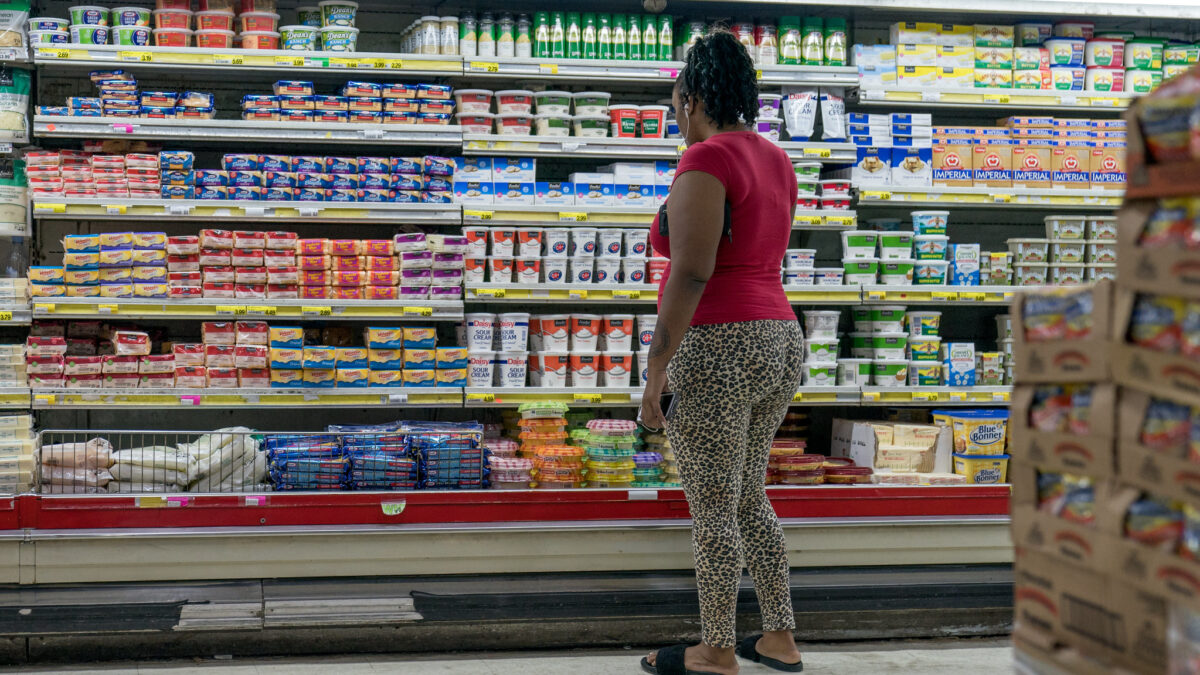President Joe Biden issued a sweeping executive order last year on Central Bank Digital Currency (CBDC), which “places the highest urgency on research and development efforts into the potential design and deployment options of a United States CBDC.”
The Biden administration and its corporate media echo chamber want Americans to focus only on CBDC’s many benefits. But experiences in China, a nation that launched a digital currency in 2020, have shown that a CBDC considerably expands government power at the expense of individual freedom.
China’s digital currency, e-CNY, differs significantly from cryptocurrencies like Bitcoin. For instance, neither central banks nor governments have the power to program or manage Bitcoin. The total amount of Bitcoin was capped at 21 million by its mysterious creator. Such a finite supply gives Bitcoin its anti-inflation property. While Bitcoin transactions are transparent for all to see, users remain anonymous.
China’s central bank, however, controls the supply of its digital yuan and can dictate when and how people spend it. According to The Wall Street Journal, the Chinese digital yuan is programmable, and “Beijing has tested expiration dates to encourage users to spend it quickly, for times when the economy needs a jump start.”
Users of the digital yuan do not have the benefit of anonymity, so they are traceable, and the government knows precisely when each person spends money and what they spend it on. The digital yuan gives China’s authoritarian regime another powerful surveillance tool to control the Chinese people.
China’s intrusive social credit system already monitors 1.4 billion Chinese people, and it subjects their behaviors to various rewards and punishments. Beijing has a broad definition of “bad behavior,” ranging from running a red light to being critical of the Chinese government’s policies. Even before the digital yuan’s issuance, those Chinese citizens who received lower social credit scores due to “bad behaviors” struggled to live an everyday life. Many couldn’t travel because they were unable to buy plane or train tickets, some were denied school or employment opportunities, and some pet owners even had their pets confiscated.
The digital yuan has enabled the Chinese government to reprimand human rights activists, religious practitioners, and government critics in new and terrifying ways: by instantly deducting fines from their bank accounts, confiscating their wealth, or banishing them from China’s digital payment system completely. Knowing they won’t be able to survive for a day in a cashless society is frightening enough to silence most dissenting voices.
A young Chinese woman’s viral video demonstrates what life in China was like when shut out of the nation’s digital payment system — what she called a “global social monetary control information system.” No matter how much paper currency she was willing to pay in a cashless city like Shanghai, she couldn’t buy anything, not even a pork bun. Frustrated and hungry, she complained, “How horrible China has become.”
Anyone who assumes the U.S. and other democracies will not abuse CBDCs like China has done is delusional. The Covid-19 pandemic revealed how quickly democratically elected governments in the West expanded their powers and intruded on citizens’ economic and political freedom in the name of public health.
The most notorious example was when Canadian Prime Minister Justin Trudeau invoked the Emergencies Act to crack down on truckers who protested peacefully against the government’s vaccine mandate. Without a court order, he froze bank accounts and suspended vehicle insurance for anyone linked to the protests.
Before pushing for the digital dollar, the Biden administration had already looked for other ways to track Americans’ personal finances. It proposed to compel U.S. financial institutions to report all transactions from accounts holding more than $600 to the IRS, hoping to catch so-called “tax cheats” to help pay for the administration’s massive spending increases on left-wing causes, such as climate change.
Many critics warned that such a move would invade Americans’ privacy and put more personal financial data at risk. After much public outcry, the Biden administration backed down and recommended raising the threshold to accounts with more than $10,000 in annual transactions.
The digital dollar is Biden and his Democrat allies’ renewed and barely disguised effort to track American transactions and collect financial data. Given how often foreign adversaries have hacked various government agencies’ databases, Americans already have little faith in the U.S. government’s ability to protect Americans’ privacy. Why should we be coerced to hand over even more personal financial data to the government by using a CBDC?
Another troubling aspect of the digital dollar is that, once implemented, government officials can hardly resist the temptation to impose politically or ideologically driven limitations on spending. Biden’s executive order gave the game away by stating that a U.S. CBDC must ensure “financial inclusion and equity” and monitor or mitigate “climate change and pollution.”
Based on the Biden administration’s track record, it is likely to use the digital dollar to enforce a version of communist China’s social credit system. The administration will divert government resources to advance left-wing causes, such as climate change, without congressional oversight, while restricting government payments in areas such as oil and gas production or firearm manufacturing and trading. No wonder Florida Gov. Ron DeSantis called Biden’s digital currency proposal “a wolf coming as a wolf.”
Early this year, Sen. Ted Cruz, R-Texas, introduced legislation to “prohibit the Federal Reserve from developing a direct-to-consumer central bank digital currency which could be used as a financial surveillance tool by the federal government.”
Sen. Chuck Grassley, R-Iowa, a co-sponsor of the bill, said: ”The American people ought to be able to spend their money how they choose without the possibility that every transaction could be tracked by the government. Policy this impactful should be made by Congress, not government bureaucrats.”
Two months later, Rep. Alex Mooney, R-W.Va., introduced his own bill to close the Federal Reserve’s CBDC pilot program loophole. Unfortunately, unless the GOP wins back the White House next year, none of these bills are likely to become laws.
Meanwhile, the Biden administration and the Federal Reserve continue to make progress in their quest for the digital dollar. In July, the Federal Reserve launched FedNow, allowing businesses and individuals to “send and receive instant payments in real-time, around the clock, every day of the year.” Some experts warned that FedNow could “lay the groundwork for the infrastructure needed for a potential central bank digital currency in the U.S.”
The Biden administration has placed “the highest urgency” on the development of the digital dollar, so all Americans who cherish liberty and want to protect their privacy must clearly, loudly voice their opposition to a CBDC. Public resistance may be our only way to prevent the U.S. from becoming a digital dystopia like communist China.









